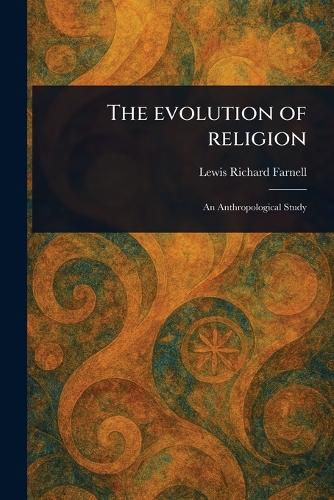Readings Newsletter
Become a Readings Member to make your shopping experience even easier.
Sign in or sign up for free!
You’re not far away from qualifying for FREE standard shipping within Australia
You’ve qualified for FREE standard shipping within Australia
The cart is loading…






This title is printed to order. This book may have been self-published. If so, we cannot guarantee the quality of the content. In the main most books will have gone through the editing process however some may not. We therefore suggest that you be aware of this before ordering this book. If in doubt check either the author or publisher’s details as we are unable to accept any returns unless they are faulty. Please contact us if you have any questions.
Lewis Richard Farnell's "The Evolution of Religion: An Anthropological Study" explores the historical development of religious thought and practice. This meticulously prepared edition delves into the origins of prayer and the comparative analysis of different religious systems through an anthropological lens.
Farnell examines the social evolution of religious ideas, offering insights into the roots of ritual and belief. A foundational text in the study of religion and society, this work provides a detailed overview of religious evolution, suitable for anyone interested in the intersection of religion and science, Christian theology's relationship to anthropology, and the broader field of cultural and social anthropology. Discover the enduring relevance of Farnell's research as he traces the anthropological underpinnings of religious experience.
This work has been selected by scholars as being culturally important, and is part of the knowledge base of civilization as we know it.
This work is in the public domain in the United States of America, and possibly other nations. Within the United States, you may freely copy and distribute this work, as no entity (individual or corporate) has a copyright on the body of the work.
Scholars believe, and we concur, that this work is important enough to be preserved, reproduced, and made generally available to the public. We appreciate your support of the preservation process, and thank you for being an important part of keeping this knowledge alive and relevant.
$9.00 standard shipping within Australia
FREE standard shipping within Australia for orders over $100.00
Express & International shipping calculated at checkout
This title is printed to order. This book may have been self-published. If so, we cannot guarantee the quality of the content. In the main most books will have gone through the editing process however some may not. We therefore suggest that you be aware of this before ordering this book. If in doubt check either the author or publisher’s details as we are unable to accept any returns unless they are faulty. Please contact us if you have any questions.
Lewis Richard Farnell's "The Evolution of Religion: An Anthropological Study" explores the historical development of religious thought and practice. This meticulously prepared edition delves into the origins of prayer and the comparative analysis of different religious systems through an anthropological lens.
Farnell examines the social evolution of religious ideas, offering insights into the roots of ritual and belief. A foundational text in the study of religion and society, this work provides a detailed overview of religious evolution, suitable for anyone interested in the intersection of religion and science, Christian theology's relationship to anthropology, and the broader field of cultural and social anthropology. Discover the enduring relevance of Farnell's research as he traces the anthropological underpinnings of religious experience.
This work has been selected by scholars as being culturally important, and is part of the knowledge base of civilization as we know it.
This work is in the public domain in the United States of America, and possibly other nations. Within the United States, you may freely copy and distribute this work, as no entity (individual or corporate) has a copyright on the body of the work.
Scholars believe, and we concur, that this work is important enough to be preserved, reproduced, and made generally available to the public. We appreciate your support of the preservation process, and thank you for being an important part of keeping this knowledge alive and relevant.